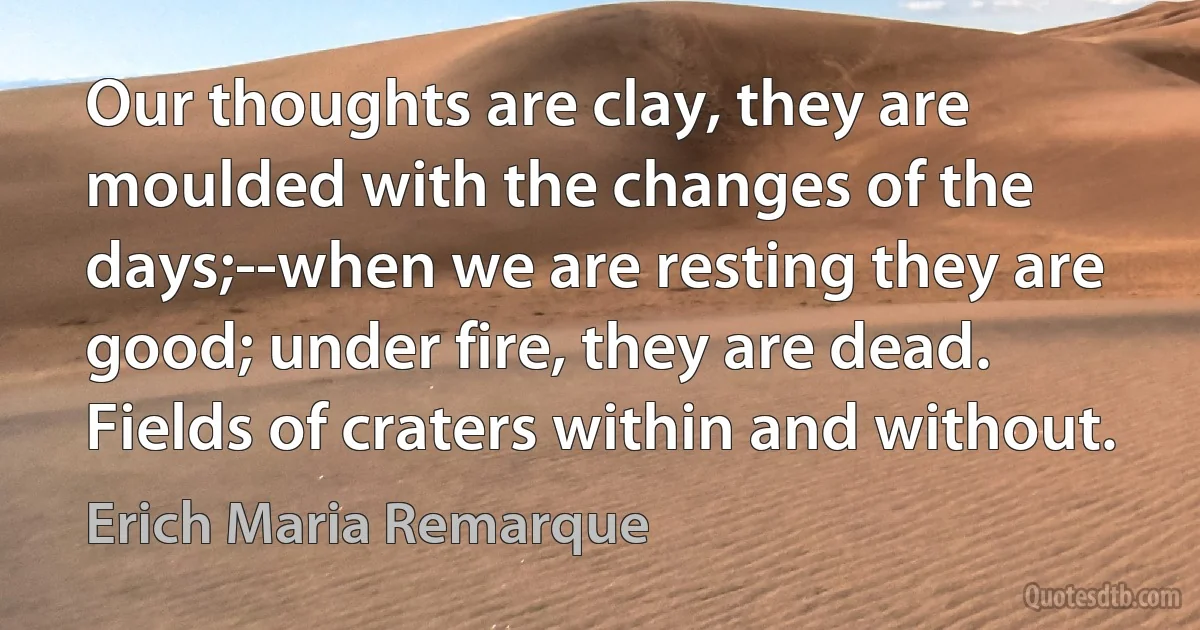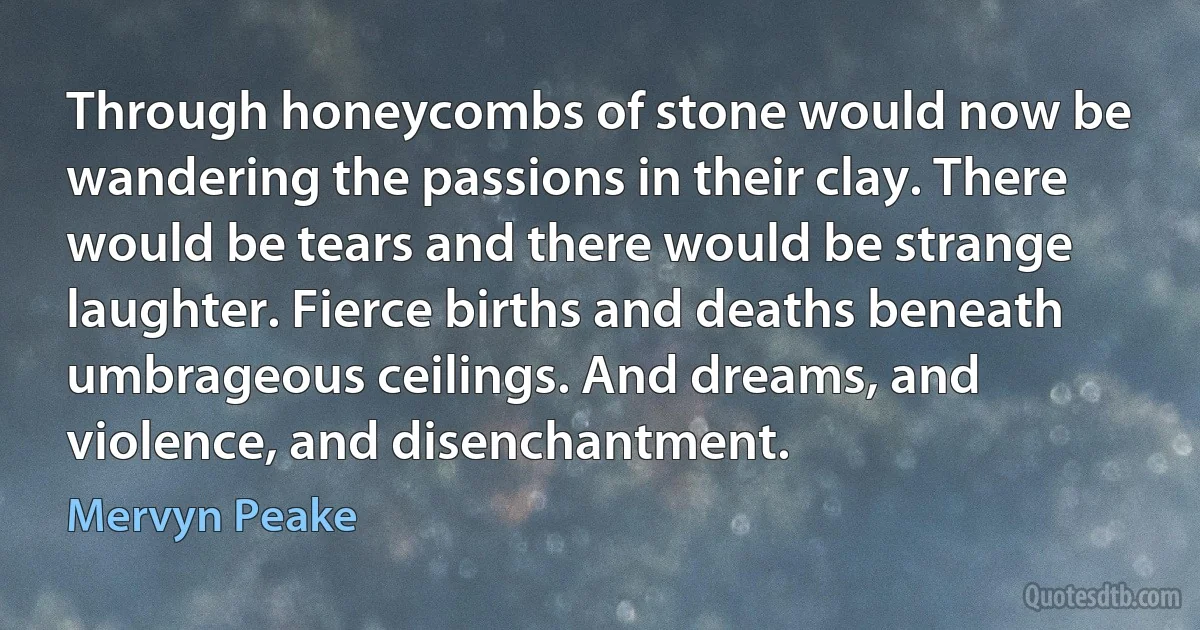Clay Quotes - page 5
Who is that goddess to whom men should pray
But her from whom their hearts have turned away,
Out of whose virgin being they were born,
Whose mother nature they have named in scorn
Calling its holy substance common clay.
Yet from this so despised earth was made
The milky whiteness of those queens who swayed
Their generations with a light caress,
And from some image of whose loveliness
The heart built up high heaven when it prayed.

George William Russell
In the states of Maxilua and Callet, in Further Spain, as well as in Pitane in Asia Minor, there are bricks which, when finished and dried, will float on being thrown into water. The reason why they can float seems to be that the clay of which they are made is like pumice-stone. So it is light, and also it does not, after being hardened by exposure to the air, take up or absorb liquid. ...They have therefore great advantages; for they are not heavy to use in building and, once made, they are not spoiled by bad weather.

Vitruvius
And as Paul said these things to himself, a wave of sadness washed over them as though they'd been written in sand. He was understanding now that no man could live without roots-roots in a patch of desert, a red clay field, a mountain slope, a rocky coast, a city street. In black loan, in mud or sand or rock or asphalt or carpet, every man had his roots down deep-in home.

Kurt Vonnegut
The concepts of time and space reflect the significance of media to civilization. Media that emphasize time are those that are durable in character, such as parchment, clay, and stone. The heavy materials are suited to the development of architecture and sculpture. Media that emphasize space are apt to be less durable and light in character, such as papyrus and paper. The latter are suited to wide areas in administration and trade. The conquest of Egypt by Rome gave access to supplies of papyrus which became the basis of a large administration empire.

Harold Innis
Fabio Colonna deserves to be distinguished; for, although he gave way to the dogma that all fossil remains were to be referred to the Noachian deluge, he resisted the absurd theory of Stelluti, who taught that fossil wood and ammonites were mere clay, altered into such forms by sulfurous waters and subterranean heat; and he pointed out the different states of shells buried in the strata, distinguishing between, first, the mere mould or impression; secondly, the cast or nucleus; and thirdly, the remains of the shell itself. He had also the merit of being the first to point out, that some of the fossils had belonged to marine, and some to terrestrial testacea.

Charles Lyell
Pesotsky had an immense house with columns and lions, off which the stucco was peeling, and with a footman in swallow-tails at the entrance. The old park, laid out in the English style, gloomy and severe, stretched for almost three-quarters of a mile to the river, and there ended in a steep, precipitous clay bank, where pines grew with bare roots that looked like shaggy paws; the water shone below with an unfriendly gleam, and the peewits flew up with a plaintive cry, and there one always felt that one must sit down and write a ballad.

Anton Chekhov
Its decadence, satiety, and languor [of Roman civilization] interested me. And I kept looking and returning to their wall paintings with their veiled melancholy and their elegant plasticity. I admired the way they used their geology in their art - the sense of mineral, clay. rock, marble, and stone.

William Baziotes
For years, I have been pleading with somebody in charge at Forbes Field to put clay instead of sand in the batter's box. Sand causes your feet to slip. Clay gives you a chance to keep your feet solid. So all I got for years was sand and more sand. Batters would dig holes. I come to bat and scrape dirt to cover up the holes. Suddenly this year, they put clay in the batter's box. Now I have firm footing. Now I can get a toe-hold.

Roberto Clemente



